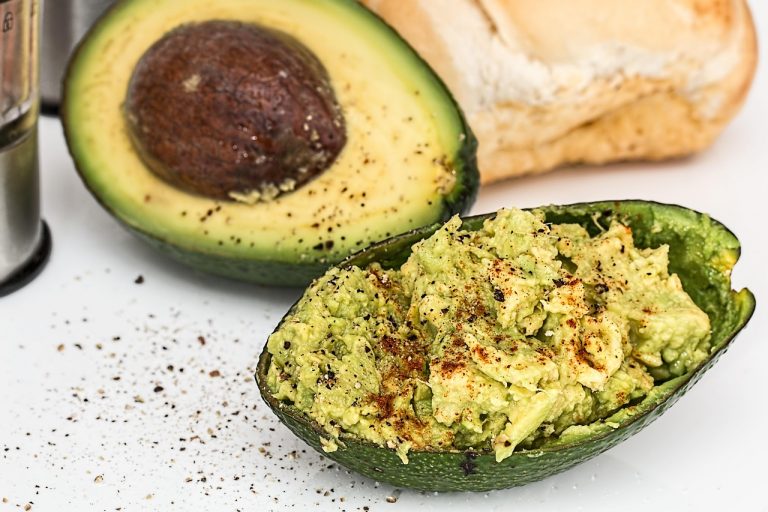Fasting for fat loss isn’t just a trendy buzzword; it’s a powerful tool that can transform your body and your life. If you’re tired of the endless cycle of dieting and weight management, fasting might just be the answer you’ve been searching for.
Contents
What is Fasting?
Fasting is the voluntary abstention from food for a specific period. It’s not about starving yourself; it’s about giving your body a break, allowing it to reset and heal. Whether you choose intermittent fasting, time-restricted eating, or prolonged fasting, the benefits can be remarkable. Understanding these benefits can help you make informed choices about your health and wellness journey.
Why Fasting Matters
Why should you care about fasting? Because it can offer you a fresh perspective on your relationship with food. It’s not just about losing weight; it’s about gaining control over your body and your life. If you’re feeling overwhelmed by the conflicting information about diets, fasting can provide clarity and simplicity.
Let’s dive into the seven surprising benefits of fasting for fat loss that you might not know about.
1. Boosts Metabolism
One of the most immediate benefits of fasting for fat loss is its ability to boost your metabolism. During a fast, your body shifts into a fat-burning mode, utilizing stored fat for energy. This means that you could be burning calories even while you’re not eating.
- Increased hormone levels: Fasting encourages the release of norepinephrine, a hormone that helps break down fat.
- Enhanced fat oxidation: Your body becomes more efficient at using fat for fuel.
2. Reduces Insulin Resistance
Fasting can significantly lower insulin levels, which is crucial for fat loss. When your insulin levels drop, your body is better able to access stored fat for energy. This is particularly important for those struggling with weight gain or obesity.
- Improved insulin sensitivity: Studies show that fasting can enhance your body’s response to insulin, making it easier to manage your blood sugar levels.
- Lower risk of type 2 diabetes: By reducing insulin resistance, fasting may help prevent the onset of diabetes.
3. Enhances Mental Clarity
You might think that skipping meals would leave you foggy and unfocused, but the opposite can be true. Many people experience heightened mental clarity during fasting periods. This isn’t just a coincidence; it’s a physiological response that can improve your cognitive function.
- Brain-derived neurotrophic factor (BDNF): Fasting increases levels of BDNF, which supports brain health and function.
- Enhanced focus: With fewer distractions from food, you may find yourself more productive and alert.
4. Promotes Autophagy
Autophagy is your body’s way of cleaning out damaged cells, allowing for regeneration and renewal. Fasting initiates this process, which can lead to improved cellular health and longevity.
- Cellular repair: By promoting autophagy, fasting helps your body get rid of toxins and damaged cells, making way for healthier ones.
- Increased lifespan: Some studies suggest that autophagy can contribute to longevity by slowing down the aging process.
5. Supports Heart Health
Fasting isn’t just beneficial for fat loss; it also supports your heart. Research indicates that fasting can improve various risk factors for heart disease, including blood pressure, cholesterol levels, and inflammatory markers.
- Lower cholesterol: Fasting has been shown to reduce LDL cholesterol levels, which can protect against heart disease.
- Reduced inflammation: By lowering inflammation, fasting may also help reduce your risk of chronic diseases.
6. Simplifies Meal Planning
Let’s be honest: meal planning can be exhausting. Fasting simplifies your eating schedule, reducing the time and energy you spend thinking about food. Instead of stressing over what to eat for every meal, you can focus on nourishing your body during designated eating windows.
- Less decision fatigue: With fewer meals to plan, you can devote your mental energy to other important areas of your life.
- Saves time: Fasting can free up your schedule, allowing you to spend more time on hobbies, work, or family.
7. Boosts Weight Loss Motivation
Sometimes the hardest part of embarking on a weight loss journey is finding the motivation to start. Fasting can reignite that spark by showing you immediate results. Many people find that they lose weight quickly during fasting periods, which can be a powerful motivator.
- Visible results: Seeing the scale move can encourage you to stick with your fasting regimen.
- Community support: Many people are turning to fasting, creating a supportive community that can keep you motivated.
How to Get Started with Fasting
If you’re ready to dive into fasting for fat loss, start small. Consider trying intermittent fasting—this means eating during a specific window of time (like 8 hours) and fasting for the remaining hours of the day.
A Simple Guide to Intermittent Fasting:
- Choose your window: Common schedules include 16/8 (fast for 16 hours, eat for 8) or 5:2 (eat normally for five days, limit calories to 500-600 for two days).
- Stay hydrated: Drink plenty of water, herbal teas, or black coffee during fasting hours.
- Listen to your body: If you feel unwell, it’s okay to modify your approach.
Tips for Success
- Stay consistent: Just like any habit, consistency is key to reaping the benefits of fasting.
- Focus on nutrition: When you eat, prioritize whole foods that nourish your body.
- Seek support: Join online forums or local groups to connect with others on a similar journey.
Final Thoughts
Embracing fasting for fat loss can be a life-changing decision. It’s not just about shedding pounds; it’s about gaining a healthier relationship with your body and food.
Bottom Line
Fasting offers a multitude of benefits that extend beyond fat loss. From boosting metabolism to enhancing mental clarity, the advantages are both surprising and empowering. Don’t be afraid to explore this approach to health and wellness. Your body—and mind—might just thank you for it.
FAQ
Q: Is fasting safe for everyone?
A: While fasting is safe for many people, it may not be suitable for everyone. Consult with a healthcare professional before starting any fasting regimen, especially if you have underlying health conditions.
Q: Can I drink coffee or tea while fasting?
A: Yes! Black coffee and unsweetened tea are generally acceptable during fasting periods and can even enhance fat-burning.
Q: How long should I fast for the best results?
A: The optimal fasting duration varies by individual. Start with shorter fasting periods and gradually increase as your body adapts.
Q: Will I feel hungry during fasting?
A: Initially, you may experience hunger pangs. However, many people find these decrease as their bodies adapt to the new eating schedule.
Embarking on your fasting journey could open doors you never knew existed. Take the plunge, and let this transformative experience guide you toward a healthier, happier you.
Get Your FREE Natural Health Guide!
Subscribe now and receive our exclusive ebook packed with natural health tips, practical wellness advice, and easy lifestyle changes, delivered straight to your inbox.





